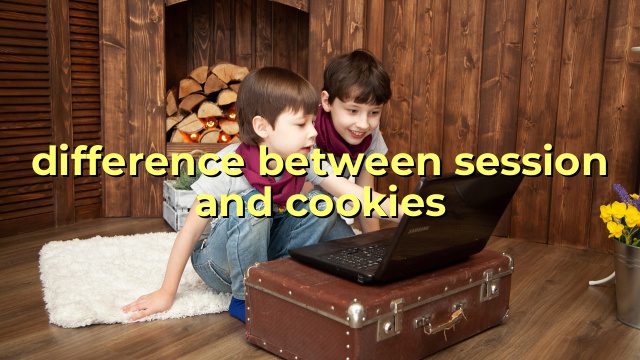Difference Between Session and Cookies
When it comes to web development and user tracking, session and cookies are two commonly used methods. Both are vital components for web applications and help in providing a personalized user experience. However, there are significant differences between session and cookies, and it’s crucial to understand them.
What Are Cookies?
Cookies are small files stored on a user’s device by a web server. These cookies contain data that the server may use to personalize the user’s experience. For instance, when a user logs in to a website, a cookie is created that stores their login credentials. This way, the user doesn’t have to keep logging in every time they visit the website.
Cookies come in two types: persistent and session cookies. Persistent cookies remain on a user’s device for an extended period, while session cookies last only during the user’s session. Cookies are typically used to store website preferences, browsing history, and login information.
What Are Sessions?
Sessions refer to the time between the user logs in and logs out of a website. From the moment a user logs in, a session is created, and it ends when they log out. During this time, the user can interact with various parts of the website, and the website stores information about their activities.
The information saved during the session includes user preferences, product or service preferences, and cart contents, among others. Sessions make it easy for users to pick up where they left off and navigate a website without losing saved data.
Key Differences Between Session and Cookies
The primary difference between session and cookies lies in their lifespan. Cookies persist even after a user logs out, while sessions end immediately after log out.
Cookies are stored on the user’s device, while session data is stored on the server. This makes session data more secure as it’s not accessible to third-party websites.
Sessions are time-bound, meaning they expire after a specific period of inactivity by the user. Cookies, on the other hand, remain on the device until they expire or are deleted manually.
Conclusion
In summary, cookies and session are both valuable tools for web application development. While they share some similarities in their functionality, they are fundamentally different in terms of lifespan and location of storing data. It’s crucial to understand the differences between the two to ensure that you use them effectively in your application.
Table difference between session and cookies
| Feature | Session | Cookies |
|---|---|---|
| Storage Location | Server-side | Client-side |
| Lifespan | Until the user closes the browser or the session expires on the server | Determined by the expiration date set by the server, can persist after closing the browser |
| Capacity | Can store large amounts of data on the server | Limited to 4KB of data |
| Security | More secure, as data is stored on the server and not accessible by the client | Less secure, as data is stored on the client-side and can be modified by the client |
| Usage | Used for storing user-specific information and maintaining state across multiple requests | Used for storing small amounts of data that needs to be accessed by the server or the client |
